Is the Shroud of Turin a Genuine Miracle?
by Fr. Dwight Longenecker
Filed under Christianity and Science
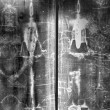
In June I had the joy to spend a week in Italy. One reason for my pilgrimage was to venerate the Shroud of Turin. I had been intrigued by the supposed burial cloth of Christ since I was in college, and as I was in England leading a pilgrimage with Joseph Pearce, I did not want to miss the chance of traveling to Turin to see the shroud. I was not disappointed. After taking the high-speed train from Rome, a decent restaurant and an overnight stay, we walked the few blocks from our hotel first thing... Read More
Is Atheism Wishful Thinking?
by Fr. Dwight Longenecker
Filed under Atheism

One of the jabs atheists make towards Christians is that our religion is all wishful thinking. They like to blame us for believing in "a sugar daddy in the sky"–a kind of invisible Santa Claus who is going to make everything okay one day. When we die we’ll all go to a happy family reunion and all the nasty stuff will go away. If we hold on tight for a few years here, we’ll just go upstairs for the big party. We are also supposed to believe in a God who answers prayers here below and gives... Read More
Do Christians Believe in Talking Snakes?
by Fr. Dwight Longenecker
Filed under The Bible

You know how the story goes: in the Garden of Eden Adam and Eve have a conversation with the serpent. Does this mean Christians believe in talking snakes? That’s the charge from certain atheists. To be a Christian, they assume, you have to believe in talking snakes. But then why are there an awful lot of well-educated, smart Christians? Are they simply all gullible or deluded? This story in Genesis about the talking snake, like many others, has to be interpreted using what experts call “literary... Read More
Does the Shroud of Turin Prove God?
by Fr. Dwight Longenecker
Filed under The Existence of God, The Resurrection
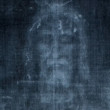
I've written here at Strange Notions in the past about miracles and skepticism, and about the greatest miracle claim of all, Jesus' resurrection from the dead. Such miracles serve as arguments for God’s existence, but not philosophical arguments based on design, prime movers, etc. They are based on physical, historical evidence. The arguments go like this: If atheistic materialism is true, then the natural world must be a closed system. Everything must be explained within that closed system.... Read More
Did Jesus Really Rise from the Dead?
by Fr. Dwight Longenecker
Filed under The Resurrection
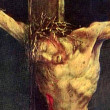
Last week I wrote a post here on David Hume, miracles, and the resurrection of Jesus. Some of the commenters took issue with my claim that "all the alternatives to the fact of the resurrection of Jesus Christ from the dead are more incredible than the miracle." I'd like to elaborate on that here. Christians claim that the historical human being Jesus of Nazareth was executed then physically rose from the dead and stayed alive. He was seen by many people and then was seen to vanish into the invisible... Read More
David Hume, Miracles, and the Resurrection
by Fr. Dwight Longenecker
Filed under The Existence of God, The Resurrection
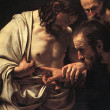
Most Catholics and atheists agree that if God does not exist, then the material world must be a closed system. If there is no God, the world is self-creating and self-reliant. If there is no God, then there cannot be interruptions in nature. The material world works according to the laws of physics, and even if there are mysteries that cannot presently be explained, they will be one day. In fact, if there is no God, then the physical world must work according to the laws of nature and nothing... Read More
Aliens, Angels, and the Cosmos
by Fr. Dwight Longenecker
Filed under Cosmology

Are you familiar with the Fermi Paradox? It goes something like this: “There are billions of stars out there like the sun. Therefore, statistically there must be billions of planets like earth where intelligent life has developed. Given the vast amount of time, and the vast number of possible 'other earths,' there must be other intelligent life forms who have invented space travel. Yet while this seems extremely probable, we haven't encountered any." There are several problems with this proposed... Read More
Revolution and Revelation
by Fr. Dwight Longenecker
Filed under Religion

Many people are surprised when I, a Catholic priest, tell them that God does not exist—at least, he doesn't exist as we exist. He is, instead, the very ground of all existence. He does not exist so much as he is existence. Yet this often provokes a good question: “How does one move from God who is ipsum esse subsistans (the very substance of existence) to the God of scapulars and rosaries?” In other words, how does one move from the philosophical concept to all the details of a particular... Read More
How Do we Know the Gospels are Historical?
by Fr. Dwight Longenecker
Filed under The Bible
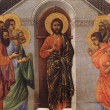
Among Catholics and atheists, is easy to exchange convinced assertions: “The gospels are 100% God’s holy Word and every bit is historically accurate!” or “The gospels are fairy tales!” However there is a discipline called “Biblical scholarship” in which scholars do some very interesting work determining just which parts of the gospels they think are reliable and which they think are not. Their conclusions are, of course, debated. That’s what scholars do. Their work is fascinating... Read More
Catholicism and Free Thought
by Fr. Dwight Longenecker
Filed under Anthropology, Religion, Uncategorized

Many people believe that Catholicism, because it is a dogmatic religion, stifles free thought and free speech. “How nice for you,” some will say to a Catholic convert, “Now that you’re a Catholic, you won’t have to think anymore.” Or, “It must be nice to be a Catholic and have such ‘certainty.’” This is said with a snuffling, cynical laugh because by ‘certainty’ they often mean that one has become a mindless robot—a Kool Aid drinking cult member following the demands... Read More







